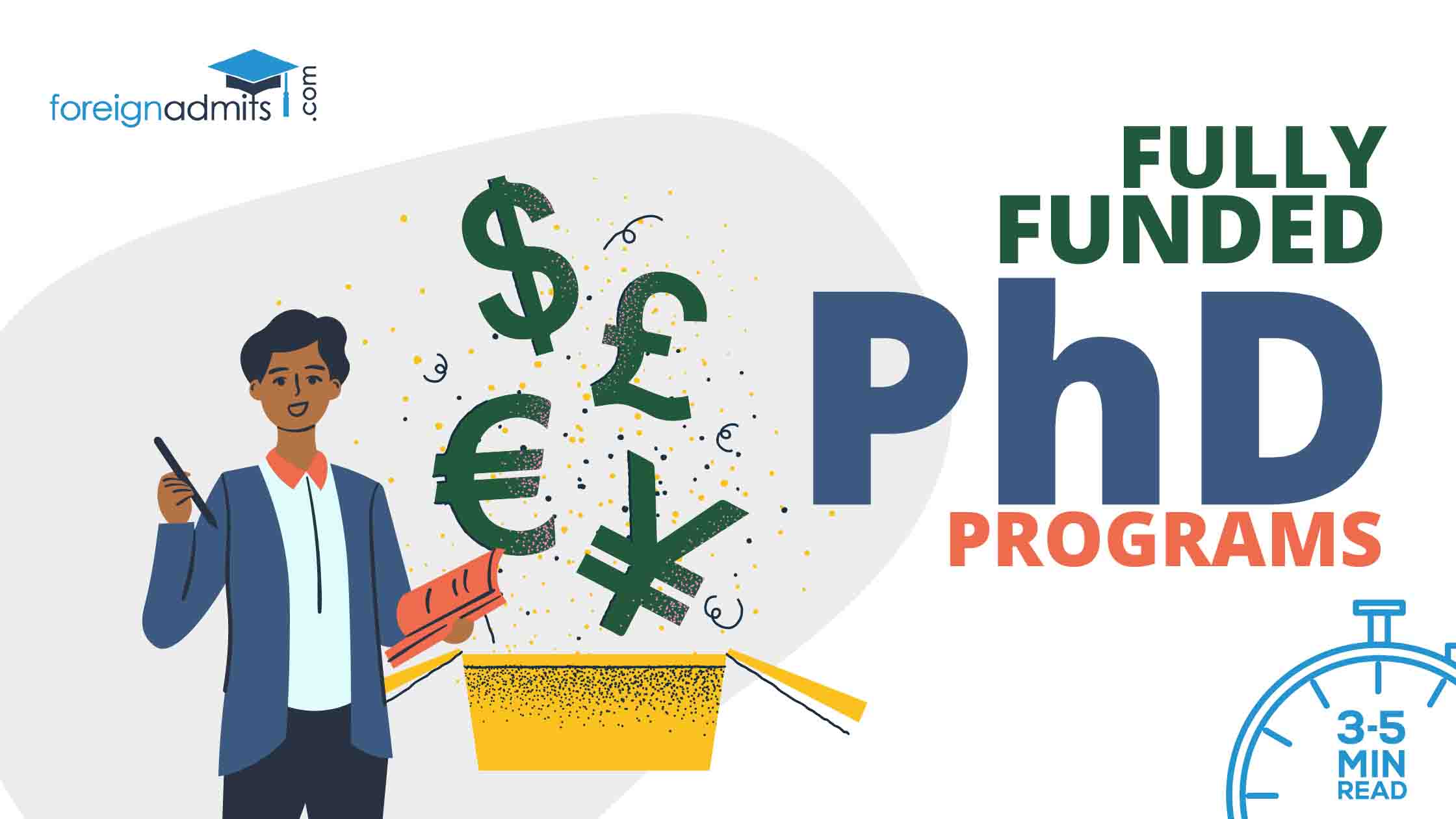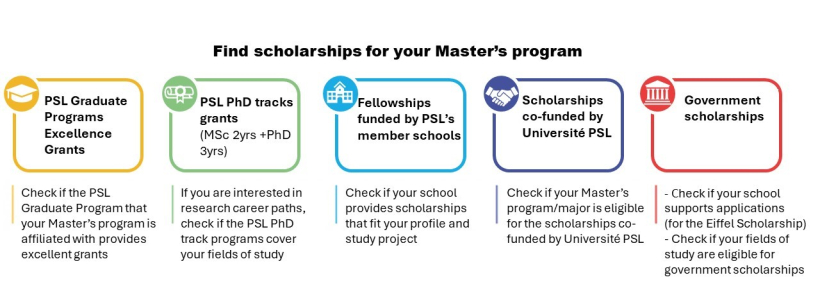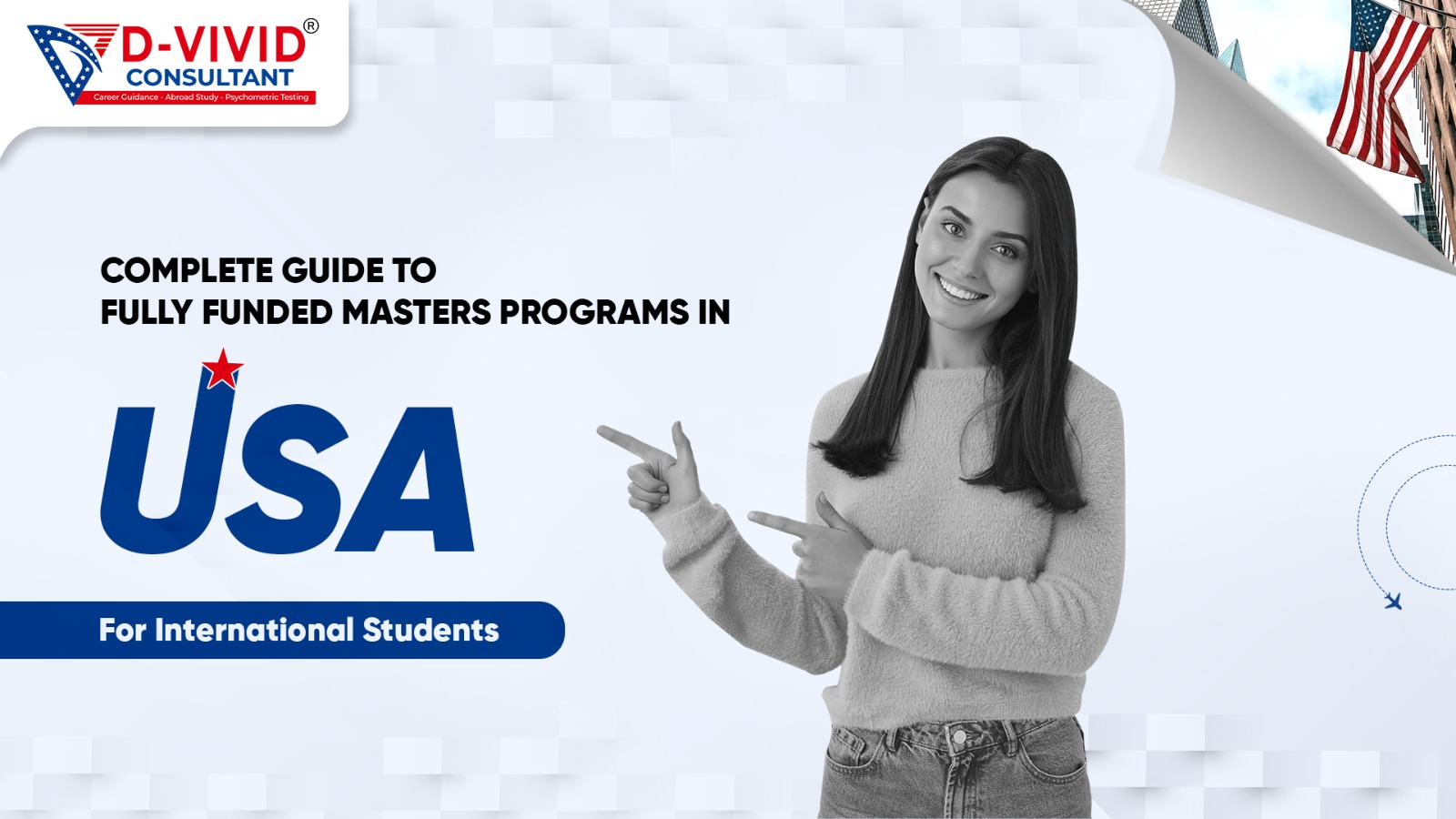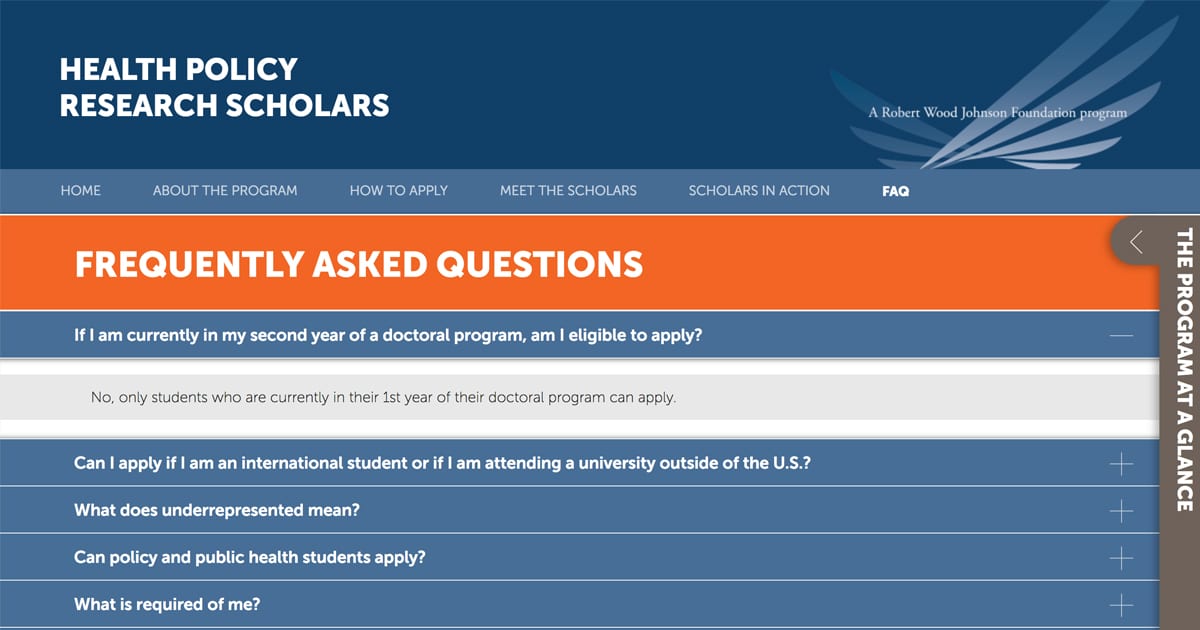Fully funded programs are academic opportunities that cover all associated costs for students, ranging from tuition fees to living expenses. These programs are primarily available for postgraduate degrees, including Master’s and PhD programs, and are sponsored by universities, government bodies, or private organizations. The benefits of fully funded programs include:
- Debt-Free Education: Students can complete their studies without accruing significant student debt.
- Enhanced Focus on Research: With financial concerns alleviated, students can concentrate on their academic work and research.
- Networking Opportunities: Engaging in fully funded programs often opens doors to professional networks and mentorship.
Eligibility Criteria
Eligibility for fully funded programs varies by institution and program. Generally, students may need to meet the following criteria:
- Academic Excellence: A strong GPA or equivalent academic achievements.
- Relevant Experience: Related work or research experience can enhance chances.
- Application Requirements: Submission of a comprehensive application, including recommendation letters and personal statements.
It’s essential for prospective students to thoroughly review the specific requirements of each program to ensure eligibility.

Fully Funded Masters Programs
Available Fields of Study
Fully funded Master’s programs are available across a wide array of fields, catering to diverse academic interests. International students can find opportunities in:
- Science and Technology: Programs in fields like Data Science, Biomedical Sciences, and Environmental Engineering.
- Social Sciences: Including Public Policy, International Relations, and Psychology.
- Arts and Humanities: Ranging from Creative Writing to Cultural Studies.
- Education: Focused on transformative teaching practices and policy-making.
These fields are not only rich in knowledge but also offer unique career pathways post-graduation.
Application Process
Applying for fully funded Master’s programs generally follows a structured process. Here’s a simple guide:
- Research: Start by exploring programs that align with your academic goals. ProFellow’s database can be a great resource.
- Prepare Application Materials: Compile necessary documents such as transcripts, CV, and recommendation letters. A compelling personal statement is crucial.
- Submit Applications: Adhere to application deadlines and ensure all materials are sent to the respective institutions.
- Financial Aid Forms: Some programs may require additional forms for funding consideration, so check each program’s specifics.
Taking these steps can pave the way towards a financially supported master’s degree experience.

Fully Funded PhD Programs
Research Opportunities
Fully funded PhD programs present a wealth of research opportunities across various disciplines including Astronomy, Biology, Chemistry, Computer Science, and many more. These programs are designed to enrich the academic experience, allowing students to:
- Engage in Groundbreaking Research: Work alongside esteemed faculty on innovative projects that push the boundaries of knowledge.
- Access Resources: Benefit from state-of-the-art labs, libraries, and research facilities.
- Network with Professionals: Collaborate with industry experts and participate in conferences to broaden research exposure.
These opportunities not only enhance learning but also prepare graduates for competitive job markets.
Duration and Requirements
The typical duration of a fully funded PhD program is around four to five years, depending on the field of study and research progress. Here are common requirements:
- Academic Qualifications: A relevant Master’s degree or equivalent experience is often necessary.
- Research Proposal: Applicants must submit a detailed proposal outlining their intended research area.
- Recommendations: Strong letters of recommendation from academic mentors or professionals in the field.
By meeting these requirements, candidates can ensure the best chance of securing a fully funded position and embarking on a successful academic journey.

Top Institutions Offering Fully Funded Programs
Universities in the United States
The U.S. is home to several prestigious institutions that offer fully funded programs for international students. Some notable examples include:
- Yale University: Offers generous need-based scholarships that can exceed $70,000 annually.
- Stanford University: Provides comprehensive funding including tuition, living expenses, and travel allowances.
- Fulbright Scholarships: Available for various Master’s and PhD programs, covering tuition, living stipends, and accommodation.
These programs not only alleviate financial burdens but also enrich the academic journey of students from diverse backgrounds.
Universities in Europe
Similarly, Europe has numerous top universities known for their fully funded programs:
- University of Cambridge (Gates Cambridge Scholarship): Offers a stipend of £17,500, health insurance, and additional funding for academic development.
- DAAD Scholarship (Germany): Ideal for both Master’s and PhD students, providing monthly stipends and coverage of fees.
- MEXT Scholarship (Japan): Covers tuition, accommodation, and living costs for international students studying in Japan.
These opportunities open doors to world-class education, fostering cultural exchange and academic collaboration across borders.

Application Deadlines and Key Tips
Important Dates to Remember
Navigating the application timeline for fellowships and graduate programs is crucial. Many deadlines coincide, typically falling between October and January. Here are key dates to keep in mind:
- October: Finalize your list of programs and gather application materials.
- December 1: Common submission deadline for many graduate programs.
- January: Prepare for potential interviews.
Setting reminders for these dates can help you stay organized and minimize last-minute stress.
Tips for a Successful Application
To stand out in the competitive admissions process, consider these tips:
- Tailor Applications: Customize your CV and personal statements to highlight how your experiences align with each program’s focus.
- Seek Feedback: Request input from mentors or peers to refine your applications.
- Manage Your Time: Allocate sufficient time for each application component; aim for quality over quantity.
Remember, preparation is key. As Dr. Vicki Johnson emphasizes, “The prepared will succeed!” With a solid strategy and commitment, you can enhance your chances of securing that coveted spot.

Scholarships and Financial Aid Resources
External Funding Options
When looking to finance your graduate education, exploring external funding options can be a game changer. Numerous scholarships and fellowships are available through various organizations that cater to specific fields of study or demographic groups. Some key external funding options include:
- Nationally Competitive Fellowships: Programs like the Fulbright, DAAD, and Rhodes Scholarships offer substantial financial support.
- Private Foundations and Nonprofits: Organizations often provide targeted scholarships that you might qualify for.
- Professional Associations: Many fields have associations that award scholarships to support graduate students.
These resources can significantly reduce your financial burden and should not be overlooked.
Support Services for Recipients
Universities offer robust support services to assist scholarship recipients in managing their funding and academic journeys. For instance, institutions like the University of Notre Dame and the University of Houston provide:
- Workshops and Training: Guidance on crafting competitive funding applications and proposals.
- Consultations: Personalized assistance to navigate the complexities of financial aid and scholarship applications.
- Networking Opportunities: Connections to alumni and current students who can share valuable advice and experiences.
These support systems empower students to maximize their funding opportunities and achieve academic success!

Alumni Success Stories
Impact of Fully Funded Programs
Fully funded programs have proven to be transformative for many students, shaping their educational journeys and opening doors to new opportunities. Take the story of Julie Gardella, for instance. After participating in a fully funded fellowship, she successfully transitioned into a prestigious Master’s program at NYU, free from the burden of student debt. This allowed her to focus more on her academic and career aspirations without financial strain, demonstrating the powerful impact such scholarships can have on individual futures.
Professional Achievements
Graduates of fully funded programs often achieve remarkable milestones thanks to the support they receive. Many alumni, like Abiola Ajila, secure double Master’s degrees and significant professional positions. Graduates frequently land roles in esteemed organizations, become leaders in their fields, or even establish their own start-ups. The financial relief and academic support empower these individuals to explore diverse career paths, innovate in their industries, and inspire future generations. As their success stories spread, they continue to motivate others to pursue fully funded opportunities, changing lives one scholarship at a time.

Global Rankings and Accreditations
Recognized Programs and Institutions
When considering a fully funded PhD, it’s essential to focus on recognized programs and institutions that carry prestige. Schools like Yale University, Harvard University, and Stanford consistently rank among the top in global education. These institutions not only provide exceptional educational experiences but also have robust funding opportunities available for international students. For example, students can access research positions or teaching assistantships that significantly alleviate financial burdens while gaining invaluable experience.
Accreditation Standards
Accreditation is crucial when selecting a university for your PhD program. It ensures that the institution meets consistent quality standards, making your degree credible and respected in the job market.
- Regional Accreditation: In the U.S., schools must achieve region-specific accreditation from recognized bodies, which impacts the degree’s acceptance.
- Program-Specific Accreditation: Certain fields, such as engineering or business, require additional accreditation to validate the program’s quality.
Choosing an accredited institution not only enhances your educational experience but also increases your competitiveness in the workforce!

Frequently Asked Questions (FAQs)
Common Inquiries
Navigating the process of applying for a PhD can raise many questions. Here are some common inquiries:
- What is a PhD? A PhD, or Doctor of Philosophy, is the highest academic degree, focused on conducting original research.
- How long does a PhD take? Typically, a PhD lasts 3 to 6 years, depending on the program and field.
- Can I work during my PhD? While part-time work is often allowed, it’s recommended to focus on your research commitments.
These FAQs help clarify the path to doctoral studies, ensuring you’re well-informed as you embark on this journey.
Additional Resources
To support your PhD journey, various resources are available:
- FindAPhD: A comprehensive platform to search for funded PhD projects and scholarships tailored to your discipline.
- ProFellow: Offers a database of fellowships and graduate programs, alongside mentorship and guidance.
- University Websites: Often provide specific funding information and application assistance.
These resources can significantly ease the application process, helping you secure funding while pursuing your academic goals. Remember, the more prepared you are, the more successful your journey will be![17][18]

Conclusion and Next Steps
Embarking on the journey toward a fully funded graduate program can be a life-changing decision. As we’ve explored, the benefits are substantial—reduced financial burden, enhanced academic opportunities, and valuable networking experiences.
Your Path Forward
To move forward successfully, consider these steps:
- Research Extensively: Utilize resources like ProFellow or FindAPhD to find fully funded programs that fit your interests.
- Tailor Your Applications: Ensure every application reflects your unique experiences and aligns with program objectives.
- Build Connections: Reach out to faculty and current students to gain insights and strengthen your application.
With determination, preparation, and the right resources, you can achieve your academic ambitions without excessive debt. Good luck!
